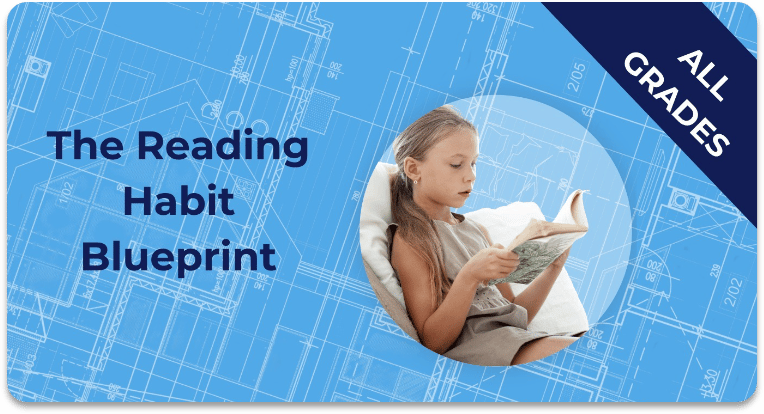- Raising Skilled Readers
- Posts
- Readers are Resilient
Readers are Resilient
The "I can do it!" feeling that readers experience extends far beyond the classroom. Reading also builds confidence and emotional resilience that helps kids navigate all of life's challenges.

It's easy to think of reading as something your child only needs in order to succeed in school. We know that kids who read well perform better on tests and handle assignments with more confidence. But, the amazing reality is that the benefits of being a reader extend far beyond the classroom.
Readers are resilient. What does that mean? Oxford defines a “resilient” person as one “able to withstand or recover quickly from difficult conditions”—what a phenomenal life skill!
When your child overcomes a reading challenge or pushes through a hard book, they get that "I can do it!" feeling. But the resilience-building benefits of reading go much deeper than being able to finish difficult homework assignments. Reading actually helps kids navigate all of life's obstacles with greater emotional strength.
As a parent, you’re always searching for ways to help your kids develop the inner strength they'll need to bounce back and thrive, no matter what life throws their way. The best method might be simpler than you think: a regular reading habit doesn't just create a better student—it creates a more resilient human being.
According to Professor Linda C. Mayes of the Yale Child Study Center, frequent readers are more likely to feel proud and excited, while kids who don't read much are more likely to feel lonely, sad, or anxious. This pattern gets even more striking in the teen years, when kids who rarely read report much higher rates of anxiety, depression, and loneliness.
In the rest of this issue, we’ll explain exactly how reading can improve your child’s ability to take on all the aspects of growing up.
In today’s issue:

Confident Characters
Your elementary schooler isn't only learning to decode words—they're figuring out who they are and who they could become. As Dr. Michele Myers from Wake Forest University puts it, an important part of growing up is “having a positive self-identity and knowing who you are. Books allow you to see that."
It’s important for you to provide “scaffolding” for your child from an early age - that means showing him how good people act and what they do. But you can’t be with your child night and day. You have to rely on other people and experiences to contribute to his development. Books can be a great source of role models who do just that.
In fact, the nonprofit organization United Through Reading, which works with military families facing unique challenges during deployment, encourages the use of stories with strong characters to build a positive self-image and emotional strength in children. If mom or dad has to be away, books can fill in some gaps and give young kids much needed structure.


Story Solutions
As your child moves into the late elementary grades, something fascinating starts happening with their reading. They begin learning how to handle life's challenges by observing how their favorite characters proactively deal with obstacles and setbacks.
Last year, researchers synthesized eleven different clinical studies and found something pretty remarkable. They published this result in the Journal of Psychiatric and Mental Health Nursing: When children read stories, they naturally analyze what's making characters unhappy and figure out how those characters cope with problems. In other words, readers can build their own decision-making toolkit based on the actions of the characters they meet in books.
A lot of parents instinctively understand that their kids do this. Scholastic’s Kids & Family Reading Report indicates that nearly half of elementary parents surveyed already use books to help their children process emotions, and another third use books to prepare kids for new experiences. The encouraging news? Kids in the report say that these books actually do help them with these issues.


Reading Reality
If you're the parent of a teen, you know these years come with unique anxieties. But did you know that young people who think of themselves as readers have a significant mental health advantage? Reading literally strengthens their brains—neurologists say it's like "eating a superfood for your brain"—but the psychological benefits are even more powerful.
Here's a statistic that might blow your mind: in HarperCollins’ study of 14-25-year-olds who strongly identified as readers, 40% describe themselves as "very happy." Compare that to young people who don't see themselves as readers—only 21% say they're "very happy." The difference gets even more dramatic when you look at daily reading habits. Happiness levels jump from 18% for kids who rarely read to 39% for those who read every day.
The challenge is that less than 1/5 of teens and young adults read daily, even though the majority know that they’ll feel less anxious and more optimistic if they take the time to read. Let’s encourage our teens to adopt reading as their go-to “self-care” strategy! They can take a break from harsh reality, while simultaneously building knowledge and skills that will make the return to reality a little easier.

P.S. Parents Need Resilience, Too!
We’re all in this together. Join our free Raising Skilled Readers community.
Gain confidence in your parenting, plus get expert answers, educational resources, and tips for helping your child develop a lasting reading HABIT!
